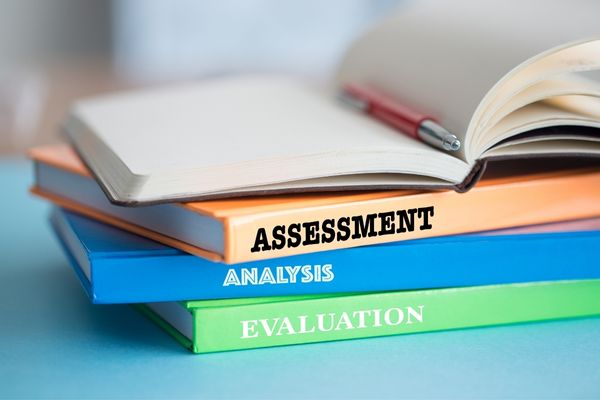What Is The Role Of Forensic Psychologists In A Criminal Case?
Forensic psychologists are mental health professionals who evaluate defendants to help courts make informed legal decisions in criminal cases. Their primary roles include determining if a defendant is competent to stand trial, assessing whether mental illness affected criminal behavior, and providing expert testimony to judges and juries. These evaluations typically require 40-50 hours of work and involve conducting interviews, reviewing police reports and medical records, administering psychological tests, and creating detailed court reports. Expert forensic psychologists provide these critical services to ensure fair legal proceedings.
Key responsibilities of forensic psychologists in criminal cases include:
- Competency evaluations – Determining if defendants understand charges and can work with attorneys through comprehensive forensic evaluations
- Mental state assessments – Evaluating whether defendants could distinguish right from wrong during the crime
- Risk assessments – Analyzing the likelihood of reoffending and public safety concerns
- Treatment recommendations – Suggesting rehabilitation programs or mental health interventions
- Expert testimony – Explaining complex psychological concepts in court
Forensic psychologists bridge the gap between psychology and law by applying scientific research and clinical expertise to legal questions. They work with courts, prosecutors, and defense attorneys to ensure fair proceedings while considering mental health factors that may have influenced criminal behavior. The American Psychology-Law Society provides guidelines for these professional practices.

Understanding a Forensic Psychologist
A forensic psychologist evaluates defendants to answer important legal questions. These professionals help courts make informed decisions about criminal cases. They receive referrals from courts, prosecutors, or defense attorneys. Their evaluations provide crucial insights into a defendant’s mental state through specialized neuropsychological evaluations.
Forensic psychologists use scientific research and psychological principles in legal settings. They apply their expertise to understand complex mental health issues. Their work bridges the gap between psychology and law. These evaluations help ensure fair legal proceedings for all parties. The American Board of Forensic Psychology certifies qualified professionals in this field. Examples of legal questions are:
- Can the defendant understand the charges against them?
- Does the defendant comprehend what happens in court?
- Can the defendant work effectively with their attorney?
- Does the defendant recognize different courtroom roles?
- Did mental illness affect the defendant during the crime?
- Could the defendant tell right from wrong?
- Did the defendant understand their actions?
Forensic psychologists examine whether mental disorders influenced criminal behavior. They determine if defendants knew their actions were wrong. These assessments help courts understand a person’s mental capacity through clinical psychological evaluations. Their findings can significantly impact legal outcomes and sentencing decisions.

The Role and Impact of Forensic Psychologists in Criminal Court Cases
Forensic psychologists handle many important questions in criminal court cases. They create detailed reports for various legal situations. In mental health diversion cases, they must answer five key questions. First, does the defendant have a mental disorder? Second, did this disorder contribute to criminal behavior? Third, can treatment help reduce the symptoms that led to the crime? Fourth, will the defendant agree to follow treatment requirements? Fifth, is community treatment safe for the public? The American Academy of Forensic Psychology provides training on these complex assessments.
Forensic psychologists also help after guilty verdicts. Defense attorneys hire them to provide helpful information. This information might reduce the defendant’s sentence. Forensic psychologists carefully present facts to help judges make fair decisions, often incorporating findings from personal or emotional injury evaluations when relevant.
What Forensic Psychologists Do in Court
Forensic psychologists operate strictly within their area of expertise. Their main purpose in court is to assist judges and juries by providing expert insights into human behavior and mental processes that may influence legal outcomes. They are often called upon to bridge the gap between complex psychological science and the legal system, ensuring that decision-makers have a clear, evidence-based understanding of relevant psychological issues. The American Board of Professional Psychology maintains standards for this specialized practice.
- Expert testimony: Serving as expert witnesses, explaining psychological principles in plain language.
- Clarifying mental states: Describing how mental health conditions or external factors (like alcohol or drug use) can affect thinking, decision-making, and behavior.
- Written reports: Preparing detailed assessments that summarize findings, conclusions, and recommendations.
- Educating the court: Helping judges and juries understand how psychological factors might relate to a case, such as a defendant’s capacity to stand trial or the likelihood of reoffending.
By translating scientific findings into understandable concepts, forensic psychologists enable courts to make more informed and fair decisions. Their expertise extends beyond criminal cases to include immigration evaluations and other legal matters.

Why Forensic Psychologists Matter in Criminal Cases
Forensic psychologists serve as a vital bridge between mental health expertise and the legal process. Their specialized knowledge allows them to interpret complex psychological issues in ways that inform judges, attorneys, and juries. These professionals influence trial outcomes, sentencing decisions, and rehabilitation plans. In criminal cases, their insights can determine whether a defendant is competent to stand trial or eligible for alternative treatment programs. The American Psychological Association provides ethical guidelines for these high-stakes evaluations.
Their work demands meticulous preparation, advanced clinical skills, and a commitment to impartiality. Each assessment involves more than simply meeting with the defendant, it requires an in-depth review of evidence, thorough interviews, and the integration of multiple sources of data. Courts depend heavily on their evaluations to guide decisions that can alter the course of a person’s life. Specialized assessments like psychoeducational testing may also be incorporated when cognitive abilities are in question.
Thorough Case Analysis
Forensic psychologists spend 40 to 50 hours analyzing each case thoroughly. This time investment guarantees accurate and complete psychological evaluations. They examine every detail of a person’s background and mental condition carefully. These professionals review past experiences and current psychological status comprehensively. Their detailed work helps maintain fairness within the legal system. The Florida Association of Professional Psychologists supports these comprehensive evaluation standards.
Multiple Interview Sessions
These experts interview defendants and speak with their family members regularly. They also meet witnesses and other professionals, like doctors or social workers. Each conversation reveals important details about the person’s mental health. These discussions help build a complete understanding of someone’s psychological state. Multiple perspectives create a fuller picture of the individual’s circumstances. In some cases, attachment and bonding assessments provide additional insights into relationships and behavior patterns.
Complete Document Reviews
Forensic psychologists study police reports, detective notes, medical records, and jail documentation. They also review criminal histories to identify patterns of behavior or mental health concerns that may impact legal outcomes. This comprehensive approach often involves collaboration with therapy services to understand treatment history.
Reviewing All Important Documents
Forensic psychologists examine police reports and detective notes from investigations carefully. They study medical records and documents from correctional facilities thoroughly. Criminal history reviews help identify behavioral patterns over time. These professionals look for mental health issues that might affect legal decisions. Document analysis provides crucial context for understanding each case. The National Academy of Neuropsychology provides guidelines for interpreting neuropsychological records in forensic contexts.
Performing Psychological Tests
Standardized assessments measure thinking abilities and emotional stability in individuals. These tests evaluate personality traits using scientific methods and proven techniques. Test results provide objective data to support professional conclusions. Forensic psychologists use various testing tools to gather measurable information. This scientific approach strengthens the reliability of their findings. When family dynamics are involved, family therapy experience enhances understanding of interpersonal factors.
Combining All Information
Professionals analyze interviews, records, and test results as one complete package. This thorough method creates an accurate psychological profile of the person. They connect different pieces of information to understand mental health fully. Integration of multiple sources ensures balanced and fair evaluations. The comprehensive analysis reflects the individual’s true psychological condition. In custody-related cases, co-parenting counseling insights may inform assessments.
Writing Professional Reports
Forensic psychologists write clear reports that explain complex psychological concepts simply. These documents help judges and lawyers understand important mental health information. Reports use straightforward language that legal professionals can easily comprehend. Written findings become essential tools in making fair legal decisions. Quality reports bridge the gap between psychology and law effectively. The Florida court system relies on these reports for informed decision-making.
This structured and evidence-based process ensures that courts receive dependable psychological expertise. Beyond assessing competency, forensic psychologists can recommend treatment, therapy, or rehabilitation programs, helping the justice system address underlying mental health needs while promoting fair and ethical legal practices. Treatment recommendations may include cognitive behavioral therapy or reunification counseling when appropriate.
Conclusion
Forensic psychologists play a vital role in criminal cases by combining psychological expertise with legal processes to ensure fair and informed outcomes. They conduct thorough evaluations that include interviews, document reviews, and psychological testing in order to determine competency, as well as assess mental states. In addition, they recommend treatment or rehabilitation when appropriate. Furthermore, their impartial analyses help clarify whether mental illness or other psychological factors may have influenced criminal behavior. By preparing detailed reports and providing expert testimony, they translate complex psychological concepts into clear, understandable language for judges, attorneys, and juries. This guidance can significantly impact trial outcomes, sentencing decisions, and rehabilitation opportunities. Through methodical, evidence-based work, forensic psychologists act as a bridge between science and law. Their contributions help protect defendants’ rights, promote public safety, and ensure that mental health considerations are addressed within the justice system, leading to more balanced and ethical legal proceedings. The Florida Supreme Court recognizes its essential role in the justice system. Professionals licensed by the Florida Board of Psychology maintain the highest standards in this critical field. To learn more about our forensic psychology services or to contact us for an evaluation, reach out today.
FAQs
What is the main role of a forensic psychologist in a criminal case?
Their main role is to evaluate mental health factors that may affect a case. They use their expertise to help courts make informed legal decisions.
How do forensic psychologists determine competency to stand trial?
They assess whether a defendant understands the charges and the court process. Next, they evaluate whether the defendant can effectively work with their attorney. Ultimately, these assessments help determine the defendant’s ability to participate in their defense.
Do forensic psychologists provide treatment?
They typically do not provide direct treatment to defendants. However, judges can still recommend rehabilitation or mental health programs to the court.
What methods do forensic psychologists use in evaluations?
To begin with, they conduct interviews with defendants and related parties. Following this, they review records and also carry out psychological tests. Subsequently, they compile detailed reports, and in addition, they make certain that all findings are thoroughly documented.
Why is expert testimony from forensic psychologists important?
It helps judges and juries understand complex psychological issues. Clear explanations allow decision-makers to apply this knowledge fairly in a case.

